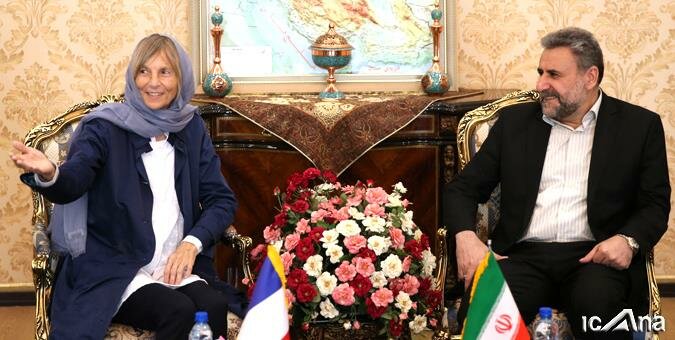MP says U.S. well aware of Iran’s defense power

TEHRAN – Majlis National Security and Foreign Policy Committee Chairman Heshmatollah Falahatpisheh said on Sunday that the White House is well aware of Iran’s defense power.
Speaking to a visiting French delegation led by Chair of the French Parliament Foreign Affairs Committee Marielle de Sarnez, Falahatpisheh said since the enemies know Iran’s defense capabilities well, there is no chance of engaging in war with Iran.
The U.S. recently sent military reinforcement forces, including the USS Abraham Lincoln aircraft carrier strike group, a squadron of B-52 bombers, and a battery of patriot missiles, to the Middle East, citing alleged unspecified “threats” from Iran.
The Iranian MP in another part of his remarks pointed to the days when the French-made Dassault Mirage fighters were provided to the Iraqi dictator Saddam Hussein during his war with Iran in the 1980s, saying
the use of those aircraft incurred irreparable damages on civilian and domestic areas in Iran, some effects of which have not been wiped out even today.
He then pointed to the Thursday attacks on two oil tankers in the Gulf of Oman, saying, “The presence of foreign warships in the Gulf of Oman has created insecurity in the region and we are waiting for more investigation into the case.”
U.S. President Donald Trump’s administration was quick to blame Iran for the attacks, which targeted a Norwegian-owned and a Japanese-owned vessel carrying petroleum products in the strategic chokepoint through which much of the world’s oil travels. The U.S. Defense Department released black-and-white video footage purportedly demonstrating that Iran is behind the attack, but some of the United States’ allies have held back from explicitly blaming Iran—including Japan and Norway. Iran has categorically denied the U.S. accusations that it was involved and strongly condemned the attacks.
The senior MP also raised doubt if a monetary channel introduced by the European Union to help Iran benefit from the 2015 nuclear deal would prove effective.
European countries established the channel, called INSTEX, in January to help shield trade with Iran from U.S. sanctions imposed after Trump withdrew from the multinational nuclear deal in May 2018.
The mechanism has so far failed to be operational.
SP/PA
Leave a Comment